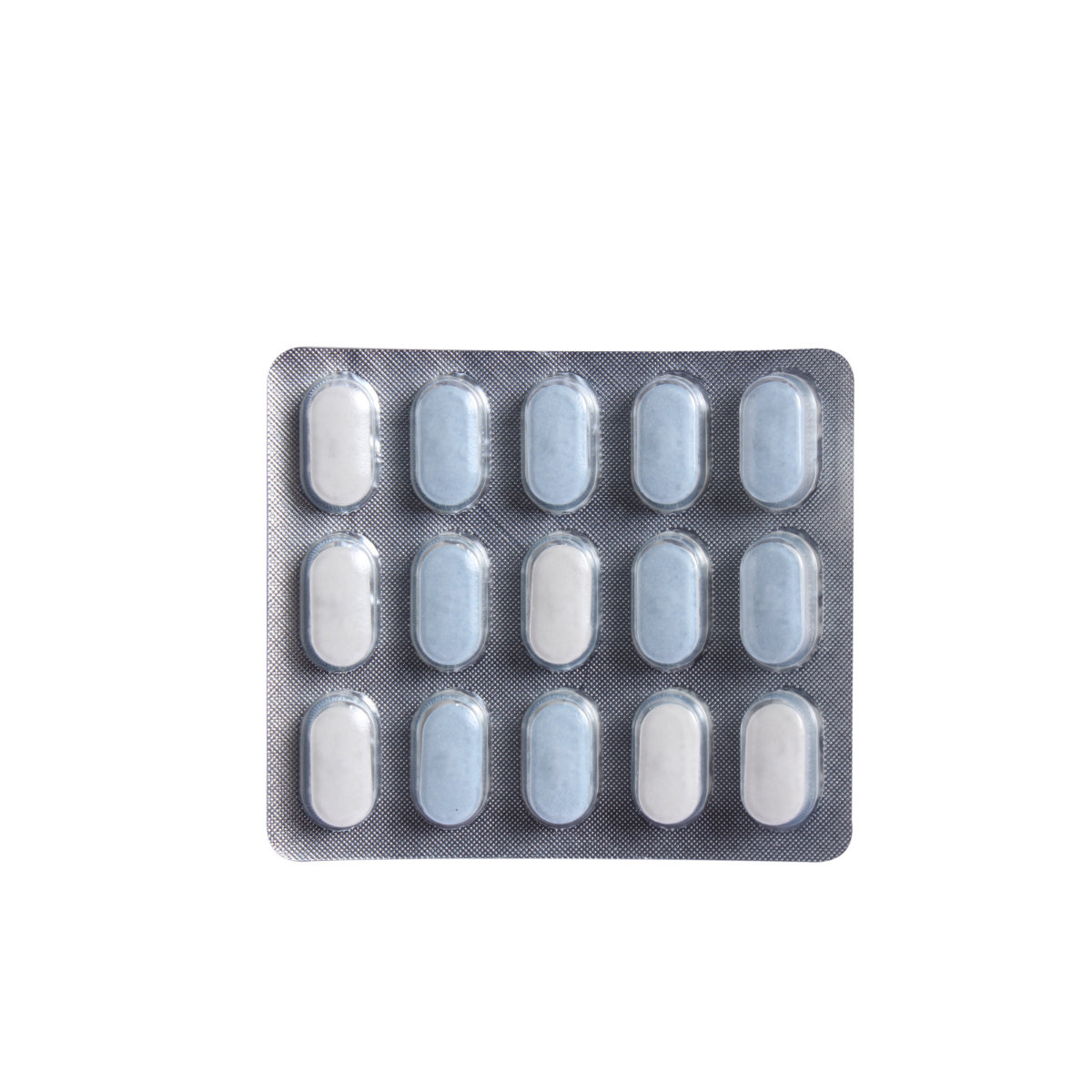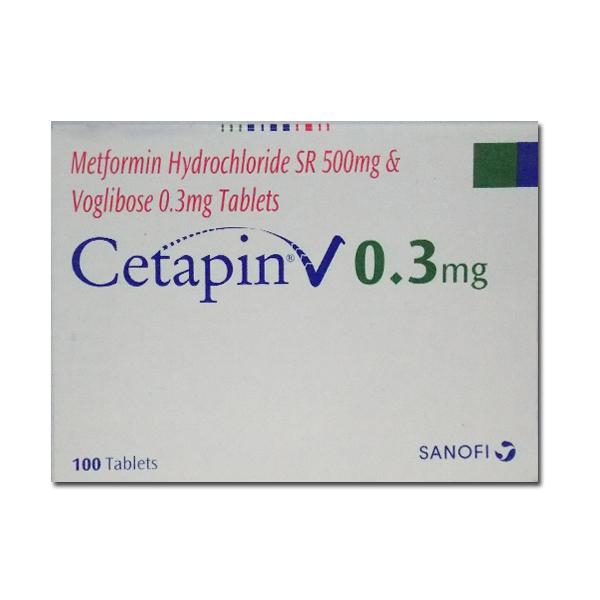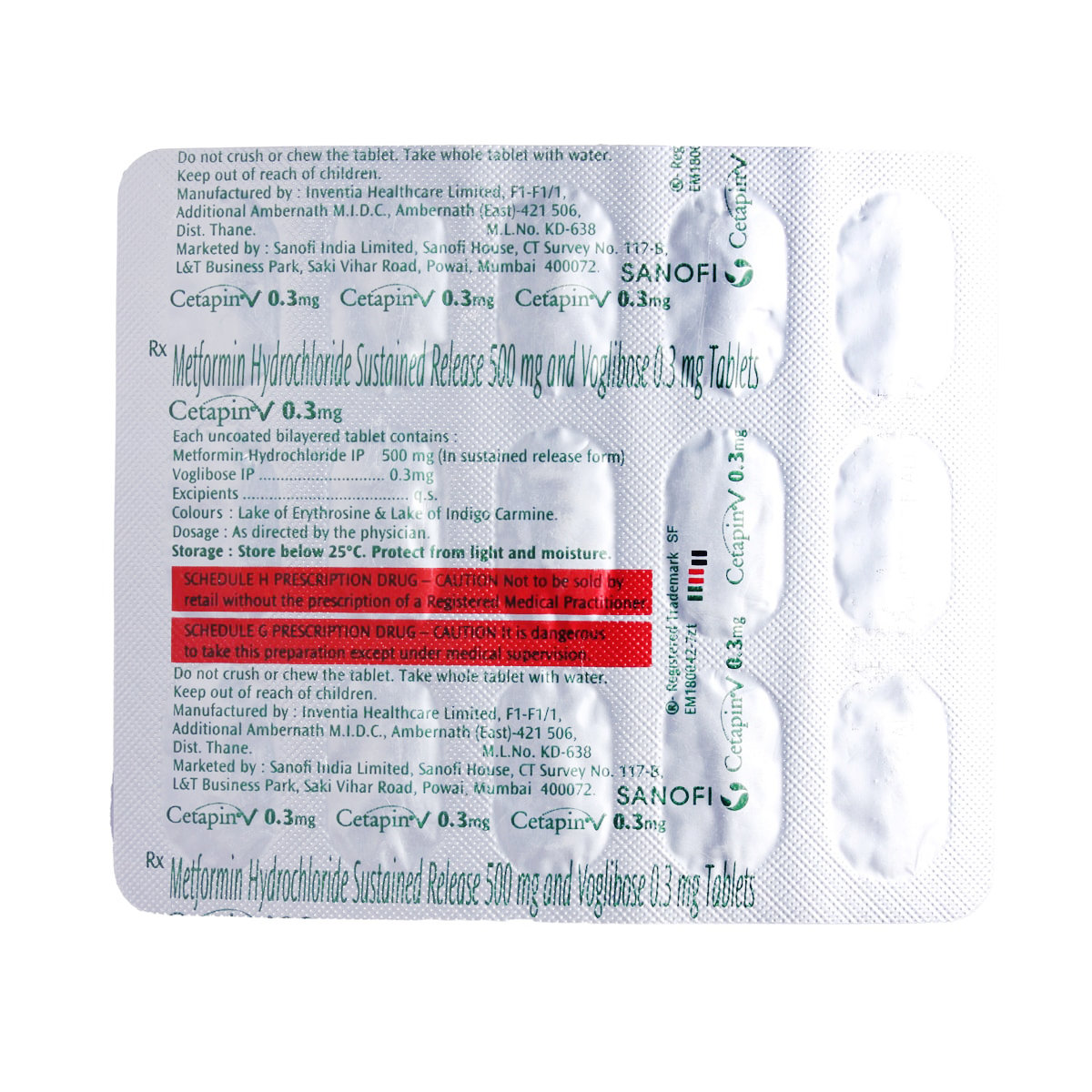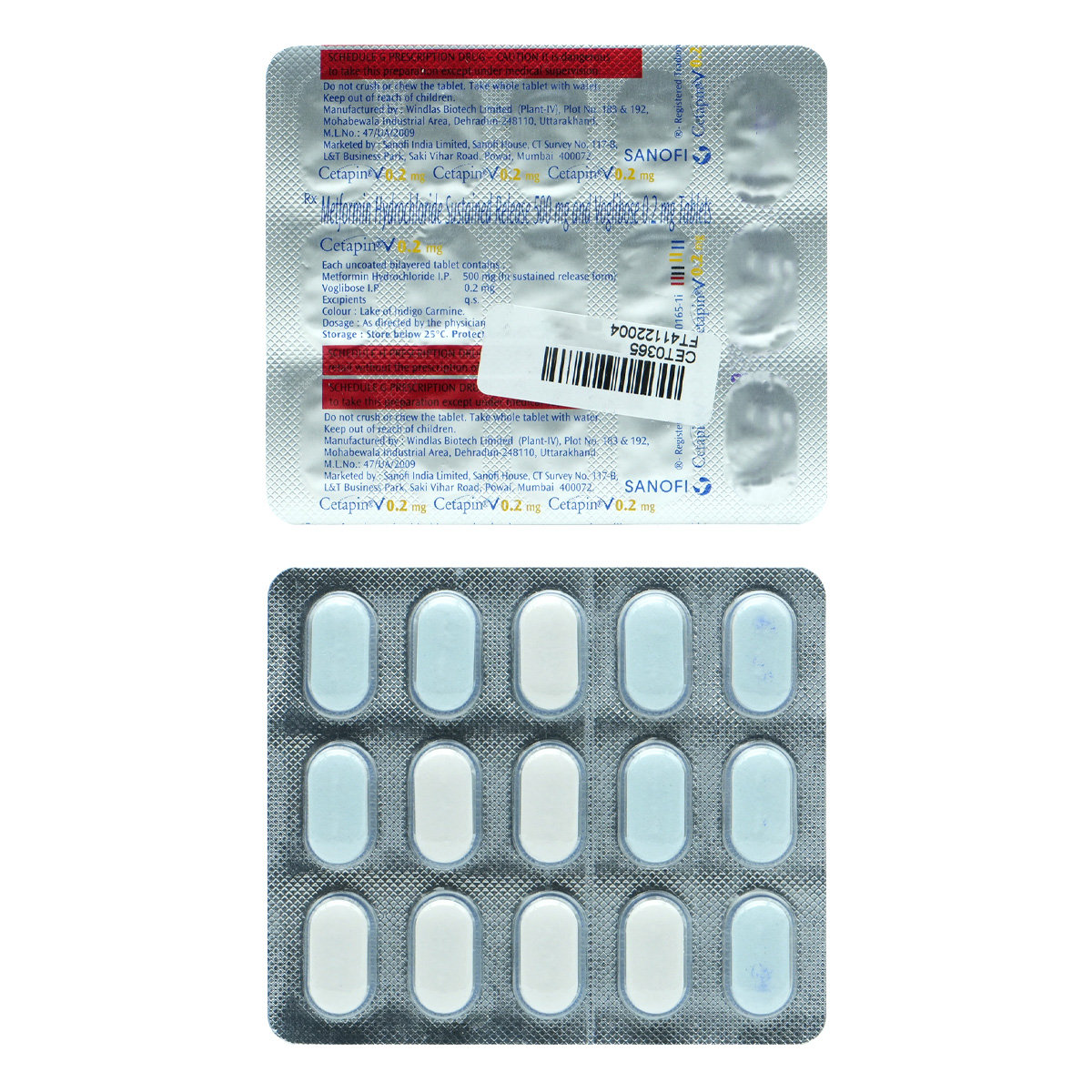Voglibose+metformin
About Voglibose+metformin
Voglibose+metformin belongs to the class of anti-diabetic drugs. It is used in the treatment of type 2 diabetes mellitus. Diabetes mellitus is a metabolic disease that causes high blood sugar levels. It occurs when the insulin (a hormone produced by the beta cells of the pancreas) is resistant in breaking the glucose to produce energy (insulin resistance) or the pancreas (an organ behind the stomach) produces little or no insulin at all.
Voglibose+metformin is composed of two medicines, namely Voglibose and Metformin. Voglibose belongs to the class of alpha-glucosidase inhibitors. It acts by inhibiting the intestinal enzymes, which break complex sugars into simple sugars such as glucose. This process prevents the rise of blood glucose levels. Metformin belongs to the class of biguanides and exhibits non-pancreatic effect to reduce serum glucose levels without increasing insulin secretion. It is also known as an insulin sensitizer as it increases the effects of insulin. Metformin is considered to be a unique anti-diabetic drug since it does not cause hypoglycemia (lowered blood sugar levels).
Take Voglibose+metformin with food at regular intervals as prescribed by your doctor. Your doctor will decide the dosage form, and this may change timely depending on your blood sugar levels. The common side effects of Voglibose+metformin include nausea, vomiting, changes in taste, diarrhoea, dizziness, stomach pain, shortness of breath, skin rash, bloating, and flatulence (intestinal wind/gas). Although not everyone experiences these side effects, if they occur, seek medical attention. Lactic acidosis, is a rare, but serious metabolic complication of excess lactic acid in the blood that is caused by metformin accumulation is reported. The risk of lactic acidosis is high in people with kidney, liver, and heart diseases.
Before starting Voglibose+metformin, let your doctor know if you have any medical history of anaemia (low hemoglobin levels), seizures (fits), heart, kidney, and liver diseases. Voglibose+metformin does not cause hypoglycemia (low blood sugar levels). However, when used with other diabetic drugs like insulin or sulfonylureas, it can lead to hypoglycemia. Also, speak to your doctor if you are on restricted food or fluid intake since Voglibose+metformin causes dehydration, low blood sugar, and kidney damage. Do not take Voglibose+metformin if you have gastrointestinal diseases like ulcerative colitis or Crohn’s disease. Do not take or stop Voglibose+metformin, if the doctor did not advise you to do so.
Uses of Voglibose+metformin
Medicinal Benefits
Voglibose+metformin is used to treat type 2 diabetes mellitus. It is a combination of Voglibose and Metformin. Voglibose belongs to the class of alpha-glucosidase inhibitors. It delays glucose absorption by inhibiting the intestinal enzymes, which break complex sugars into simple sugars such as glucose. This process prevents the rise of blood glucose levels immediately after meals. Metformin belongs to the class of biguanides. It shows the non-pancreatic effect to reduce serum glucose levels without increasing insulin secretion. It is also known as an insulin sensitizer as it increases the effects of insulin. It is considered to be a unique anti-diabetic drug since it does not lower blood sugar levels. Metformin does not cause weight gain in most cases.
Directions for Use
Storage
Side Effects of Voglibose+metformin
Common side effects:
- Nausea
- Vomiting
- Changes in taste
- Diarrhoea
- Dizziness
- Stomach pain
- Shortness of breath
- Skin rash
- Bloating
- Flatulence (intestinal wind/gas)
Rare side effects:
- Lactic acidosis
Drug Warnings
Voglibose+metformin may increase the risk of cardiovascular diseases and hypoglycemic conditions in renal and liver disease patients. It can cause pneumatosis intestinalis (gas-filled cysts on the bowel wall) when used along with other alpha-gastrointestinal drugs. It is advised to monitor the gastrointestinal side effects thoroughly to rule out the possibility of pneumatosis intestinalis. Voglibose+metformin has an increased risk of lactic acidosis (a rare, but serious metabolic complication of excess lactic acid in the blood that is caused by metformin accumulation). The risk of lactic acidosis is high in older people with kidney, liver, and heart diseases. Hence, brief your medical history and take advice from your doctor before starting Voglibose+metformin. Avoid consuming excessive alcohol as it can potentiate lactic acidosis.
Drug Interactions
Drug-Drug Interaction: Voglibose+metformin may interact with anti-depressants (selegiline, isocarboxazid, phenelzine), anti-inflammatory drugs (prednisolone, phenylbutazone), drugs that treat fluid retention (metolazone, hydrochlorothiazide, chlorothiazide), medicines used to treat high blood pressure (propranolol, metoprolol), anabolic, and corticosteroids. Please check the instruction leaflet that comes with the medication before you take Voglibose+metformin.
Drug-Food Interaction: Limit alcohol intake since it affects blood sugar levels. Avoid fatty foods and include healthy carbohydrates in your diet.
Drug-Disease Interaction: Tell your doctor before taking Voglibose+metformin if you have a medical history of allergic reactions to medicines, heart diseases, liver, and kidney problems. Voglibose+metformin may cause pneumatosis intestinalis (gas-filled cysts on the bowel wall) when used along with other alpha-gastrointestinal drugs.
Drug-Drug Interactions Checker List:
Safety Advice

Alcohol
unsafeIt is unsafe to consume alcohol since it may worsen the side effects.

Pregnancy
cautionPlease consult your doctor before starting Voglibose+metformin if you are pregnant or planning to conceive.

Breast Feeding
cautionThere is no sufficient data on how Voglibose+metformin affects breastfeeding. It is safe to seek medical advice before you start Voglibose+metformin if you are lactating.

Driving
cautionYour driving ability may be affected if your blood sugar levels are too high or too low. Do not drive or operate machinery if you also experience dizziness or drowsiness.

Liver
cautionLet your doctor know if you have any history of liver diseases or hepatic impairment when you are prescribed Voglibose+metformin.

Kidney
cautionLet your doctor know if you have any history of kidney diseases when you are prescribed Voglibose+metformin.

Children
cautionPlease seek advice from a doctor before giving Voglibose+metformin to a child.
Habit Forming
Diet & Lifestyle Advise
- Maintain a fiber-rich diet and include healthy carbohydrates from fruits, vegetables and whole grains to maintain your blood glucose levels.
- Eat at regular intervals
- Keep a check on your weight and exercise regularly to keep your heart healthy.
- Your doctor also guides you on how to notice and manage the early symptoms of high/low blood sugar levels.
- Gastrointestinal side effects can be managed with simple modifications in your lifestyle. These include cutting down on sugars and fatty foods, and avoiding carbonated drinks and foods that cause gas.
Special Advise
Regular blood tests are recommended while taking Voglibose+metformin to monitor blood sugar levels.
Patients Concern
Disease/Condition Glossary
Diabetes Mellitus type 2 is a condition in which either the body stops producing enough insulin (the hormone which helps to decrease sugar levels in the blood) or there is resistance to the action of insulin. As a result, excessive insulin is produced but it fails to act on the organs of the body. Symptoms of type 2 diabetes include feeling exhausted all time, feeling thirsty, having blurry vision, and the urge to urinate (pee) more often. Complications of type 2 diabetes include skin infection, eye problems (retinopathy), nerve damage (neuropathy), delayed wound healing, diabetic foot (foot ulcer), kidney disease (nephropathy), high blood pressure, and even stroke. Both low and high blood sugar levels can be dangerous and should be treated as soon as possible. Your H1bA1C below 5.7% is normal, 5.7-6.4% confirms the prediabetes stage, and 6.5% or greater states diabetes condition.
FAQs
Voglibose+metformin contains two antidiabetic drugs, namely: Voglibose and Metformin. Voglibose delays glucose absorption by inhibiting the intestinal enzymes, which break complex sugars into simple sugars such as glucose. Metformin works by reducing the sugar production by cells in the liver and delays sugar absorption from the intestines.
There is no evidence of Voglibose+metformin, causing weight loss. However, high doses of medicine affect food absorption, thereby causing a weight loss. Consult your doctor before starting Voglibose+metformin.
Voglibose+metformin may increase the risk of low blood sugar levels, especially with alcohol intake, exercise more than usual, delay or missing snacks or meals. However, if you experience any signs of low blood pressure such as dizziness, nausea, light-headedness, dehydration or fainting, please consult a doctor.
You are not recommended to stop taking Voglibose+metformin on your own as discontinuing Voglibose+metformin suddenly may cause recurring symptoms or worsen the condition. However, if you experience any difficulty while taking Voglibose+metformin, please consult your doctor so that alternative medicine may be prescribed.







